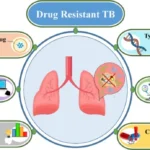Hope is emerging in the fight against an aggressive form of cancer following the release of promising early-stage clinical trial data for a novel drug. Researchers announced that the experimental therapy has demonstrated significant efficacy in shrinking tumors and improving outcomes in patients with limited treatment options. While the findings are preliminary and require further investigation in larger trials, they offer a potential breakthrough for individuals battling this challenging disease.
The cancer in question is known for its rapid growth and tendency to metastasize, making it difficult to treat effectively with conventional therapies such as chemotherapy and radiation. Patients with advanced stages of the disease often face a poor prognosis. The new drug utilizes a novel mechanism of action, targeting specific molecular pathways involved in the cancer’s growth and spread.
In the early-stage trial, which involved a small cohort of patients with relapsed or refractory disease, a significant proportion of participants experienced a substantial reduction in tumor size. Some patients even showed complete remission, with no detectable signs of cancer following treatment. Furthermore, the drug appeared to be relatively well-tolerated, with fewer severe side effects compared to traditional chemotherapy regimens.
Researchers emphasized that these early results are highly encouraging but cautioned that further research is necessary to confirm the drug’s safety and efficacy in a larger and more diverse patient population. Phase 2 and Phase 3 clinical trials, which will involve hundreds or thousands of participants, are planned to evaluate the drug’s effectiveness compared to standard treatments and to identify potential long-term side effects.
The development of this novel drug underscores the importance of ongoing research into the underlying biology of cancer and the pursuit of targeted therapies. By understanding the specific molecular drivers of different cancer types, scientists can develop drugs that selectively attack cancer cells while minimizing damage to healthy tissues. This precision medicine approach holds great promise for improving cancer treatment outcomes and reducing the burden of the disease.
The positive early results have been met with cautious optimism by the medical community and patient advocacy groups. If further trials confirm the drug’s efficacy and safety, it could represent a significant advancement in the treatment landscape for this aggressive form of cancer, offering new hope to patients and their families. The journey from early-stage trials to regulatory approval is often lengthy and complex, but the initial findings provide a compelling reason for continued research and investment in this promising therapy.















